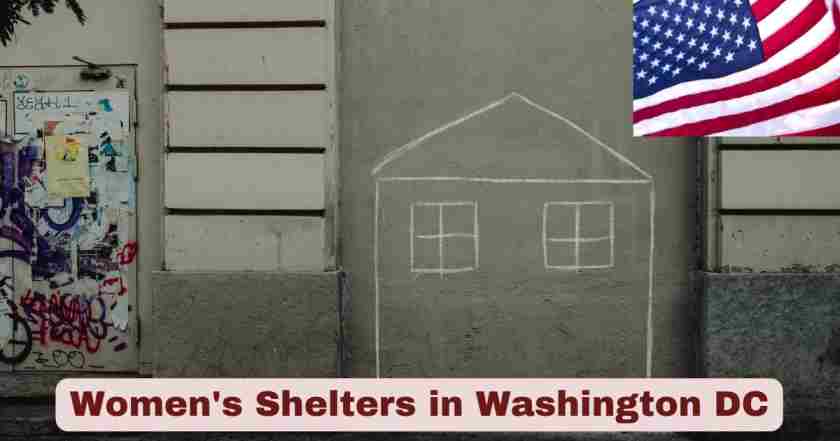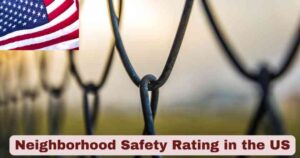Women’s Shelters in Washington DC 2025
Women’s shelters in Washington DC represent a critical safety net for thousands of survivors of domestic violence, intimate partner violence, and dating violence throughout the District. These specialized facilities provide essential emergency housing, transitional support, and comprehensive services designed specifically to help women and their children escape dangerous situations and rebuild their lives. The women’s shelter system in DC has evolved significantly to address the complex needs of female survivors, incorporating trauma-informed care, specialized programs for different demographics, and innovative approaches to permanent housing solutions tailored to women’s unique safety requirements.
The landscape of women’s shelters in Washington DC 2025 reflects both the ongoing challenges of domestic violence against women and the District’s commitment to creating comprehensive support systems specifically for female survivors. With dedicated women’s shelter facilities, specialized programs for women and children, and partnerships with community-based organizations focused on women’s services, the shelter network serves as more than just temporary housing for women – it functions as a gateway to long-term stability, safety, and empowerment specifically designed for female survivors. The integration of these women-specific services with broader domestic violence prevention initiatives demonstrates the District’s understanding that women face unique challenges and require specialized responses across multiple service sectors.
Interesting Stats & Facts about Women’s Shelters in Washington DC 2025
| Key Facts about Women’s Shelters | 2025 Data |
|---|---|
| Women’s Domestic Violence Programs in Washington DC | 16 active women-focused programs |
| Women’s Programs with 24/7 Hotlines | 7 women’s shelter programs |
| Emergency Women’s Shelter Programs | 6 dedicated women’s shelter programs |
| Women Experiencing Domestic Violence in DC | 39% have reported physical assault, sexual assault, or stalking |
| Homeless Women with Previous DV Experience | Over 80% of homeless mothers |
| Trauma Experience Among Women in Shelters | 93% of mothers in women’s shelters experienced trauma |
| Women’s Shelter Beds at The Aston | 100 specialized beds for women without children |
| Women Served by DC Safe | Only 24/7 women’s crisis intervention in DC |
| Women’s Culturally Specific Programs | Asian Pacific Islander women’s program active |
| Women’s Employment Programs | Multiple providers offering job training for women |
| Women’s Transitional Housing Duration | Up to 18 months for women with children |
| Women’s Court Advocacy Services | Available through 7 major women’s programs |
The data reveals the extensive network supporting women survivors in the District, with women’s shelters in Washington DC 2025 providing specialized services for female survivors of violence. The 39% of women in the District of Columbia who have reported experiencing domestic violence underscores the critical need for accessible women’s shelter services. With 16 active domestic violence programs specifically serving women and 6 emergency women’s shelter programs, the infrastructure supports immediate crisis response tailored to women’s unique safety needs and trauma responses.
The correlation between domestic violence and women’s homelessness is particularly striking, with over 80% of homeless mothers having previously experienced domestic violence, highlighting why women-specific shelter services are essential components of safety planning for female survivors. The fact that 93% of mothers in women’s shelters have experienced trauma demonstrates the specialized trauma-informed approaches required in women’s shelter programming, emphasizing the need for services designed specifically around women’s experiences of violence and recovery processes.
Women’s Shelter Capacity and Service Distribution in Washington DC 2025
| Women’s Shelter Service Type | Number of Women’s Programs | Capacity/Coverage for Women |
|---|---|---|
| Emergency Women’s Shelter Beds | 6 women’s shelter programs | First-come, first-served for women in crisis |
| 24/7 Women’s Crisis Hotlines | 7 women’s programs | Continuous availability for women |
| Women’s Non-Congregate Housing | The Aston women’s program | 100 beds for women without minor children |
| Women’s Transitional Living Programs | Multiple women’s providers | 12-18 months for women and children |
| Young Women’s Services | Specialized women’s programs | Women ages 18-24 |
| Women’s Family Shelter Services | Integrated women’s programs | Women with dependent children |
| Women’s Case Management | All major women’s providers | Comprehensive services for women |
| Women’s Court Advocacy | 7 women’s programs | Legal support specifically for women survivors |
The distribution of women’s shelter services in Washington DC 2025 reflects a comprehensive approach to addressing different levels of need among female survivors of violence. The 6 emergency women’s shelter programs provide immediate safety for women in crisis, operating on a first-come, first-served basis to ensure no female survivor is turned away due to capacity constraints. The availability of 7 women’s programs with 24/7 hotlines ensures that women can access crisis support and women’s shelter placement assistance at any time, recognizing that domestic violence incidents against women do not follow regular business hours.
The Aston non-congregate bridge housing program provides 100 specialized beds specifically designed for women without minor children, representing an innovative approach to women’s shelter services that offers more private and trauma-informed accommodations. This model recognizes that women survivors of domestic violence often require specialized environments that prioritize safety, privacy, and dignity while they work toward permanent housing solutions. The integration of women’s transitional living programs offering 12-18 months of support acknowledges that women’s recovery from domestic violence and achieving housing stability requires extended support beyond emergency intervention.
Domestic Violence Service Providers for Women in Washington DC 2025
| Women’s Shelter Organization | Primary Women’s Services | Special Focus for Women |
|---|---|---|
| DC Safe | 24/7 women’s crisis intervention, court advocacy | Only 24/7 women’s DV crisis agency in DC |
| My Sister’s Place | Women’s shelter, support, empowerment services | Women survivors and children |
| District Alliance Safe Housing (DASH) | Safe housing for women, comprehensive services | Preventing women’s homelessness from abuse |
| House of Ruth | Women’s enriched housing, trauma-informed childcare | Women, children, and families |
| Community Family Life Services | Women’s transitional housing, employment coaching | Long-term self-sufficiency for women |
| Mary’s Center | Women’s case management, safety planning | Healthcare integration for women |
| Asian Pacific Islander DVRP | Culturally specific services for women | A/PI women communities |
| Virginia Williams Family Resource Center | Women’s family intake, case management | Women with children entry point |
The network of women’s domestic violence service providers in Washington DC 2025 represents a diverse ecosystem of specialized organizations addressing the multifaceted needs of female survivors. DC Safe stands out as the only 24/7 crisis intervention agency specifically for women experiencing domestic violence in the District, providing immediate response capabilities and court advocacy services that help women survivors navigate the legal system. This round-the-clock availability is crucial for women who may need to leave dangerous situations at any hour and require immediate safety planning and women’s shelter placement.
Organizations like DASH (District Alliance Safe Housing) focus specifically on the intersection of domestic violence against women and women’s housing instability, recognizing that housing issues both increase women’s vulnerability to abuse and result from women escaping violent relationships. Their comprehensive approach ensures that no woman survivor has to become homeless as a result of abuse, whether domestic or sexual violence. The inclusion of culturally specific services through organizations like Asian Pacific Islander DVRP acknowledges that women survivors from different communities may face unique barriers and require specialized approaches that consider cultural, linguistic, and immigration-related factors in women’s service delivery.
Young Women and Family Services in Washington DC 2025
| Women’s Program Category | Target Women Population | Key Women’s Services 2025 |
|---|---|---|
| Young Women’s Services | Women ages 18-24 | Specialized young women’s programming |
| Young Women with Children | Young mothers 18-24 | Family-focused women’s services |
| Women’s Transitional Living | Women ages 18-21 | Up to 12 months supervised living for women |
| Olaiya’s Cradle Program | Young mothers 18-21 with children | Up to 18 months women’s supportive housing |
| Transportation for Women | Women accessing shelter services | Through women’s shelter hotline |
| Women’s Outreach Services | Women experiencing homelessness | Increased street outreach for women |
| Women’s Peer Services | Women with lived experience | Women training as case managers |
| Women with Children Services | All women family units | Specialized family programming for women |
The focus on young women and family services in Washington DC 2025 addresses the unique vulnerabilities faced by young women experiencing domestic violence. Young women often face additional challenges when leaving abusive situations, including limited financial resources, lack of established credit or rental history, and potential isolation from support systems. The Transitional Living Program provides supervised apartment living for up to 12 months specifically for young women whose family problems prevent them from living at home, offering a bridge between crisis situations and independent living tailored to women’s safety needs.
Olaiya’s Cradle Program represents an innovative approach to supporting young mothers ages 18-21 with their children for up to 18 months, recognizing that young women with children face compounded vulnerabilities when experiencing domestic violence. The program’s extended timeframe acknowledges that achieving stability as a young mother requires comprehensive support that addresses housing, education, employment, and parenting skills through a women-centered lens. The availability of transportation services specifically for women accessing shelter services recognizes the barriers women face in accessing help, particularly when they may not have independent access to vehicles or may fear being tracked by abusive partners.
Housing Solutions and Permanent Placement for Women in Washington DC 2025
| Women’s Housing Initiative | 2025 Women’s Achievements | Target Women Population |
|---|---|---|
| Women’s Permanent Housing Vouchers | Significant women recipients | Women survivors with priority status |
| Women’s Prevention Services | Project Reconnect serving women | Women newly homeless or at-risk |
| Women’s Navigation Services | Front Door system for women | Streamlined access for women |
| Women’s Supportive Services | Healthcare integration for women | Comprehensive support for women |
| Women’s Bridge Housing | 100 beds at The Aston for women | Adult women without minor children |
| Second Women’s Housing Program | Opening in 2025 | Additional capacity for women |
| Women’s Housing First | Approach for women survivors | Women experiencing domestic violence |
| Women’s Rapid Rehousing | Short-term assistance for women | Women transitioning from shelters |
The success of housing solutions for women in Washington DC 2025 demonstrates the District’s commitment to moving women survivors beyond temporary shelter toward sustainable housing solutions designed around women’s unique safety needs. The implementation of Housing First principles for women survivors recognizes that women fleeing domestic violence require immediate access to safe, permanent housing without preconditions that might delay their exit from dangerous situations. This approach is particularly important for women who may have complex trauma histories or face barriers to traditional housing programs.
Project Reconnect has been particularly effective in serving women by providing housing counseling and flexible funding specifically designed to address the unique challenges women face when leaving abusive relationships. This prevention-focused approach is especially valuable for women at risk of homelessness due to domestic violence, as early intervention can prevent the trauma and instability associated with emergency shelter stays. The 100 beds at The Aston specifically designed for adult women without minor children addresses a significant gap in services, providing specialized housing for women who may not qualify for family shelter programs but require trauma-informed environments to heal and plan for their futures.
Women’s Service Integration and System Coordination in Washington DC 2025
| Women’s Integration Component | Implementation for Women | Impact on Women’s Services |
|---|---|---|
| Women’s Provider Partnerships | Fully operational for women | Comprehensive women’s service delivery |
| Women’s Hotline Integration | Navigation active for women | Streamlined access for women in crisis |
| Women’s Healthcare Coordination | Medical services for women | Integrated health services for women |
| Young Women’s Services | Specialized coordination | Comprehensive young women’s programming |
| Women’s Court Advocacy | DC Safe and others | 24/7 legal support for women |
| Women’s Employment Services | Multiple provider coordination | Economic empowerment for women |
| Women’s Trauma-Informed Care | System-wide for women | Specialized trauma services for women |
| Women’s Cultural Services | Specialized women’s providers | Culturally appropriate women’s services |
The integration of women’s shelter services in Washington DC 2025 represents a sophisticated approach to addressing the complex needs of female survivors through coordinated service delivery specifically designed around women’s experiences. The partnership between DHS and women-focused community providers ensures that emergency shelter for women is seamlessly connected to longer-term support services, case management, and permanent housing assistance tailored to women’s unique safety planning needs. This integration prevents women survivors from falling through service gaps and provides continuity of care as they transition from crisis response to stability.
The implementation of trauma-informed care specifically for women acknowledges that 93% of mothers in women’s shelters have experienced trauma, requiring specialized approaches that prioritize safety, choice, and empowerment in service delivery to women. The coordination between women’s court advocacy services and shelter programs ensures that women can safely navigate legal proceedings while maintaining their housing stability. The integration of women’s healthcare services with shelter programming recognizes that women survivors often have complex medical needs resulting from abuse, including reproductive health concerns, mental health support, and treatment for injuries that require specialized, trauma-informed medical care.
Innovation and Best Practices in Women’s Shelters in Washington DC 2025
| Women’s Innovation Category | Specific Women’s Programs | Evidence of Success for Women |
|---|---|---|
| Women’s Non-Congregate Housing | The Aston women’s program | 100 specialized beds for women |
| Women’s Peer-Led Services | Women with lived experience | Women training as case managers |
| Women’s Prevention Services | Project Reconnect for women | Women diverted from shelter system |
| Women’s Navigation Tools | System designed for women | Streamlined referrals for women |
| Women’s Flexible Funding | Financial assistance for women | Rapid exits for women survivors |
| Women’s Transportation | Services through women’s hotline | Improved access for women |
| Women’s Professional Development | Training opportunities for women | Career pathways for women |
| Women’s Regional Coordination | Metropolitan women’s strategy | Regional approach to women’s services |
The innovative approaches to women’s shelter services in Washington DC 2025 reflect cutting-edge thinking about how to most effectively serve women survivors of domestic violence and prevent women’s homelessness. The Aston non-congregate bridge housing program specifically designed for women represents a significant departure from traditional shelter models, providing 100 specialized beds in settings that offer greater privacy, dignity, and trauma-informed environments specifically for women. This model recognizes that women survivors of domestic violence may not feel safe or comfortable in traditional congregate settings and require specialized environments designed around women’s healing and safety planning processes.
The peer-led services utilizing women with lived experience demonstrates innovative workforce development that creates career pathways for women while improving service quality through peer support models specifically designed for women survivors. Project Reconnect’s success in serving women demonstrates the power of prevention-focused interventions that provide flexible funding and housing counseling specifically designed around the challenges women face when leaving abusive relationships, reducing trauma and system costs while improving outcomes for women and their children. The women-specific transportation services recognize the unique barriers women face in accessing help, particularly safety concerns about being tracked by abusive partners or lack of independent access to transportation.
Future Outlook
The trajectory of women’s shelter services in Washington DC points toward continued innovation and expansion of evidence-based practices specifically designed for women survivors that have demonstrated success in 2025. The planned opening of a second non-congregate bridge housing program with additional capacity for women will expand the availability of specialized housing options for women survivors who need alternatives to traditional shelter settings. The sustained investment in women-focused prevention initiatives suggests a strategic shift toward intervening earlier in women’s housing crises, potentially preventing more women and their children from experiencing the trauma of homelessness and extended shelter stays.
The specialized approaches to serving women survivors that Washington DC has developed position the District to influence broader metropolitan and national approaches to women’s domestic violence services. The success of women-specific programming models demonstrates that sustained, coordinated investments in women’s services, domestic violence programs tailored to women’s experiences, and housing solutions designed around women’s unique safety needs can achieve significant impacts for female survivors. As women’s peer services continue to expand and women-centered navigation tools become more sophisticated, the system’s capacity to provide culturally competent, trauma-informed, and women-centered services will continue to grow, promising even more effective outcomes for women seeking safety and stability in the years ahead.
Disclaimer: The data research report we present here is based on information found from various sources. We are not liable for any financial loss, errors, or damages of any kind that may result from the use of the information herein. We acknowledge that though we try to report accurately, we cannot verify the absolute facts of everything that has been represented.







